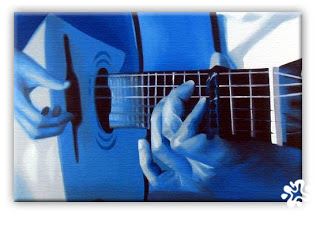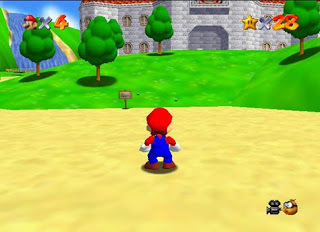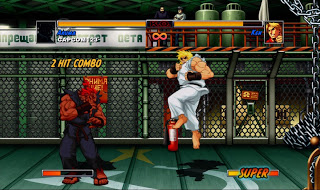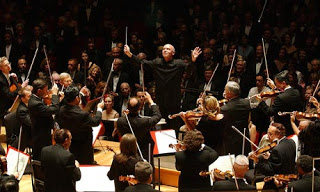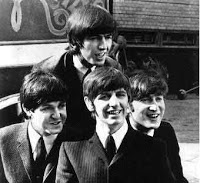This post has not been edited by the GamesBeat staff. Opinions by GamesBeat community writers do not necessarily reflect those of the staff.
Two gaming terms need to go: "casual" and "hardcore."
The line between these two categories has never been very distinct. Everyone has played at least one match of Tetris in his life, for example, and as such, it may initially appear to be a casual experience. At the same time, many people have spent hours with this simplistic puzzle game, to the extent that dreaming about Tetris blocks is a recognized phenomenon.
Farmville players may technically be "casual," but that won't stop them from playing the game for far longer than the time it'll take you to finish Kane and Lynch 2: Dog Days.
The argument here isn't that Farmville and Modern Warfare are the same, but calling one "casual" and one "hardcore" is incredibly misleading, not to mention patronizing on both fronts.
As I've blogged previously, games are actually far closer to music as a medium than anything else. Could we thus take phrases from a vocabulary that suits our medium far better?
Could we say, for example, that "casual" games are our medium's version of pop music?
Could we then go on to claim "hardcore" games take the place of classical?
Before starting an argument as to whether these specific descriptions fit, let us first examine why exactly it is that games are like music. To this end we'll look at two highly regarded works: Super Mario 64 and Beethoven's 5th Symphony.
Both are based around a single motif or idea. Super Mario 64's is Mario's ability to run and jump; Beethoven's 5th is its first four iconic notes. Both start by introducing this core idea: The music plays the tune in its most basic form, and the game puts you in control of Mario, with no obstacles to overcome and just his core abilities to play with.
As both works continue, they take their respective foundations and mix them up in new and exciting ways. The symphony plays the four notes at different tempos and at different points on the scale; Mario enters various worlds and is forced to use his abilities in alternative ways to progress. At points, they may deviate completely from their initial ideas — putting Mario on a slide for example — but both return to them regularly to give a sense of completeness.
So a good piece of music won't just be based around a (for lack of a better term) "catchy riff" but will explore it in different, exciting ways. Meanwhile, a good game needs to introduce new levels and abilities to you to keep you engaged. No one wants to play the same Mario level over and over again, no matter how well it plays.
Outside factors heavily influence the popularity of both mediums as well. As an example, fighting games could be considered to be the jazz music of gaming.
The success of fighting games was made in the arcades. Though the genre is still enormously popular now, many gamers' best memories come from outside of their own homes, shared with others in an arcade. The social aspect of these titles is enormously important, best enjoyed with an opponent by your side and with nowhere to hide when you inevitably lose.
Similarly, jazz is best enjoyed live. Recorded music may technically provide you with the songs, but so much of the experience is tied up in improvisation, that it's hard to appreciate it as much when you're hearing it after the fact. Jazz music is at its best when you listen to musicians play it, and as such it's never been as popular as it was before the days of recorded music — though that's not to say it doesn't still have a huge number of fans today.
So what of the distinction between pop and classical music?
Pop may be very different from classical, but it's still based (in general terms) upon the same theories. Pop still uses scales and keys and even takes tunes directly from classical tunes in many cases. It is, however, simplified. It's toned down. It's taken by a smaller group of composers and made more accessible. As a result of this, pop is now far more popular. And to a certain extent, it is looked down upon by fans of classical music as being too simple.
Pop games may be very different from classical games, but they're still based (in general terms) upon the same theories. Pop games still use scoring and levels and even take gameplay ideas directly from classical titles in many cases. They are, however, simplified. They're toned down. They're taken by a smaller group of developers and made more accessible. As a result of this, pop games are now far more popular. And to a certain extent, they are looked down upon by fans of classical games as being too simple.
The similarities here are hard to ignore.
From doing this exercise, we can see that it would be very easy to replace the two archaic terms with something much more suitable, but can this revelation do more for us than simply provide new terminology?
Could we examine the history of music for possible hints about the future of gaming?
We could, for example, look at the meteoric rise of pop. We see how, at first, it was shunned by the generations that had grown up with "proper" music but is now the most listened to style on the planet. We could look at how classical music is still popular today but remains far too inaccessible for many people to grasp. We could even call into question whether the population at large could ever enjoy classical games…
…but we won't, of course, because I fancy going to the pub for some crisps.
So, do you agree? If you do, I suggest thinking about other similarities that exist, such as the shunning of bands who aren't "indie" enough or the choices composers/designers make between telling a story through music/gameplay or lyrics/cutscenes. If you're feeling super generous, you could perhaps start referring to pop and classical games in your writing, so we can get this revolution on the road.
If you don't agree, I'd love to hear your responses as well — the more eloquent the better. Any uses of the word "fail" will, of course, be ignored.
